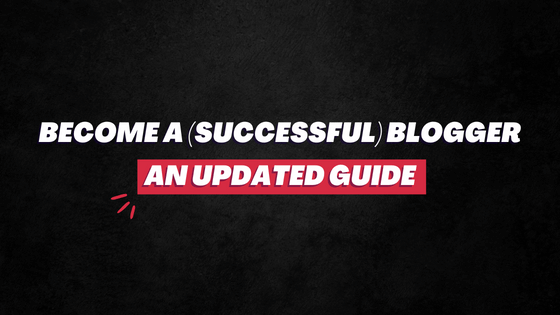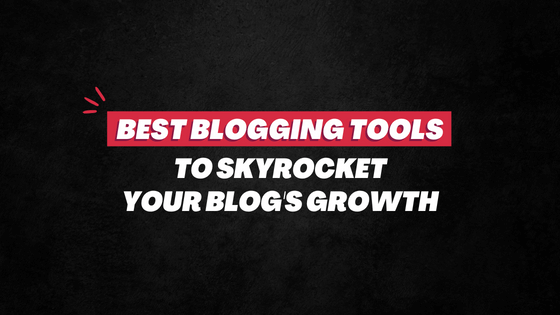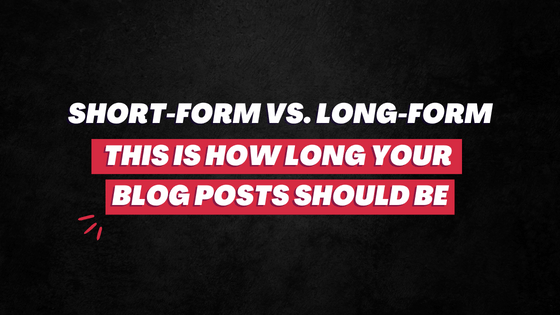You want to launch a website.
The first step in the process is coming up with a good domain name, which would usually be the name of your business as well.
This guide will teach you how to choose a domain name for your website or blog that sounds good and stands out the crowd.
By the end of this post, you will know exactly how your domain name should be.
Ready?
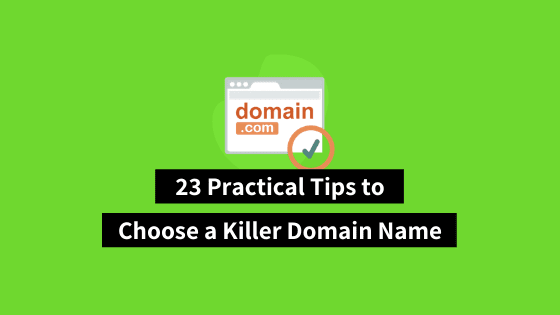
Follow these 25 practical tips on how to choose a perfect domain name for your blog or website the right way:
1. Find your competitors
You can learn a lot from your competitors – including how your domain name should be.
So, if you don’t already know who your competitors, find out and then take ideas and inspiration from their domain names.
How to find your competitors?
- Google relevant phrases and check out the names on the first few pages.
- Use relevant hashtags on Twitter to discover accounts/names in your industry.
- Join relevant Facebook groups. Find out the domain names of the members there.
- Search for directory listings and go through the names.
There are many other ways how you can find out who your competitors are.
Tools like SEMrush make discovering competitors (and doing thorough research on them) much easier.
So, take your time here. Find them and look at their domain name. Take inspiration and extract newer ideas in your head.
2. Stay away from trademarked words and phrases
Yep, you don’t want your website to become successful only to have a dude come and file a hefty lawsuit against you for using his trademarked words or phrase.
This means just checking whether or not a domain name is available is not adequate.
You also have to check if someone has the right over that word or phrase.
A simple Google search of the domain name you have in mind is adequate. Go through the first few pages and see if anyone else is using that exact name/phrase.
Also, there’s a cool free trademark search tool. You can check it here.
3. It doesn’t have to be very unique
Get over this idea that your domain name has to be very unique.
There are countless examples across many industries where the top names aren’t necessarily unique – but a bit creative.
Don’t pick a weird, made-up word in the name of being unique. (Trust me, I have made this mistake!)
Recommended Read: 15 Things That Will Destroy Your Blog (Without You Knowing It)
4. Don’t stretch it too long
The maximum length of a domain name is 63 characters.
You don’t want that.
You want your domain name to be as small in length as possible.
Anywhere between 6 and 15 characters is ideal.
The name of this blog ‘Spell Out Marketing’ is 17 characters and admittedly long. However, since it is made of common words, is very easy to remember, and has a meaning to it – I think it’s cool.
But you don’t want to make your domain name too long. The shorter, the better.
5. Is it easy to remember?
Ever happened that you visited a website, loved the content there but days later you can’t recall the name of that website?
There are many reasons why it happens actually.
One of those reasons is the non-memorable domain name.
Maybe the domain was long? Maybe it was too wordy? Maybe it sounded weird and complex? Maybe it was meaningless and didn’t make any sense?
You want your domain name to be memorable so that people/visitors actually remember it.
Wouldn’t you remember ‘Spell Out Marketing’?
NOTE: The “memorable” element of a domain also has to do with various other factors, including the quality of content, lack of emotional connection with the visitors, and poor focus on the brand name.
6. Simple to spell and pronounce
Neither are we spelling bee champions nor are we sophisticated speakers. The majority isn’t!
So, having a domain that’s difficult to spell and pronounce is a big mistake.
Remember, sometimes even small words are difficult or confusing to spell. Example in case, ‘quite’ and ‘quite’.
Similarly, sometimes even the common phrases are difficult to pronounce because they have multiple syllables.
So, before finalizing on any domain name, be incredibly sure that it is spell-able easily and that you can say it without any stutter.
Recommended Read: 68 Blogging Tips For Beginners and Pros
7. Make it easy to type
Type in your mobile browser “Tennessee”. Did you get it correct?
Likely not!
Avoid words that have multiple double letters and are complex to type.
Also, stay away from similar sounding words that have two different spellings/meanings. Like, accept and except, chili and chilly, specially and especially, and piece and peace.
8. Keep it relevant to your business
Admittedly, there are brands that have nothing to do with the business they are in.
Does ‘Forbes’, in any way, suggests by its name that it’s a business magazine?
Or, for that matter, can you tell by its name what ‘Droga 5’ is about? Not really!
You sure can have a domain name that doesn’t tell anything about your business. However, in such cases, you need a proper branding strategy, advertising budget, and enough time to establish who you are and what your business is about.
On the contrary, it’s a good idea to have a domain name that’s relevant and revealing of your business.
Example: Backlinko, Search Engine Journal, The Financial Times, Kentucky Fried Chicken, and Statista.
You can tell by their name what they are about, can’t you?
9. Come up with acronyms
KFC, CNN, CVS, ESPN, AT&T….
These are smart acronyms that are now brand in themselves. In reality, when you decipher their letters, you will find the true meaning of their business.
There are many other such examples.
So, in case if a word/phrase is already taken, try to come up with acronyms. This way, you will have a distinct domain name that’s brandable and, at the same time, has a meaning.
Recommended Read: How to Create Content Fast (Without Hurting Its Quality)
10. Don’t play around with the spelling
It’s common to play with the spelling of a word in case if the domain name isn’t available.
Like, replacing ‘s’ with ‘z’…
Or trying something like ‘Drizzl’ instead of real spelling ‘Drizzle’.
If possible and not needed, avoid doing this.
Such words aren’t easy to remember and spell. Moreover, they are confusing.
For instance, if someone asks you for your domain name, you will have to even explain the spelling of it. Like “’Shuttl’ without an ‘e’” or “’Scizzor’ with ‘z’”.
11. A BIG NO to numbers and hyphens
Yes, please, do not include numbers and hyphens in your domain name.
It makes it very confusing.
As mentioned in the previous point, you’ll have to explain your domain name whenever someone asks you about it.
For anyone typing that name, it would be unclear.
Such domain names create unnecessary confusion, which leads to poor recall, retention and brand positioning.
12. Make it sound trustworthy
Let’s admit it: Most of us can’t pull Ramit Sethi. His blog (and book) is called “I Will Teach You To Be Rich”.
It sounds like a scam and a C-grade website. Many people wouldn’t trust it the first time they hear about it. Hey, I was one of them.
Incidentally, Ramit pulled it off, making ‘I Will Teach You To Be Rich’ one of the top personal finance blogs. Most of us can’t pull that.
So, it’s better to stay away from domain names that scammers and spammers would use.
Keep your domain name sound subtle, sophisticated, and trustworthy.
Recommended Read: 11 Ingredients That Will Make Your Blog Post Trustworthy
13. Which TLD is ideal?
Let me not be vague here…
.com is a go-to domain extension. Period.
Even if your business is regional, you want .com TLD, which is universal, popular and default to memory.
Say, for instance, your domain ends with ‘net’. In this case, you’re not only asking people to remember your domain/business name but also a different extension. Many of them won’t remember it.
So, go with .com.
14. Don’t chase the keywords
Sure, it’s a plus if your domain name includes a relevant keyword. Like mine’s does. But this is not necessary.
It doesn’t help with SEO as much as people assume it does. And as we move forward, it’s only going to become less relevant.
So, do not base your domain name on a keyword. Do not force a keyword in that name.
This is even more important from the branding perspective.
For instance, this website….
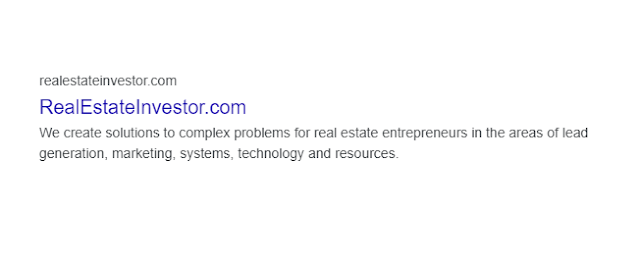
The domain is keyword-rich. (It doesn’t rank high for that keyword btw, in case if you’re wondering.)
How do you think they can brand and scale this business? ‘RealEstateInvestor(dot)com’ is such a common phrase. You cannot brand it exclusive to one business.
So, having such names in the name of the SEO is stupid. I have tried this first-hand. And it doesn’t work.
Instead of Googling “how to choose an SEO friendly domain name”, search “how to choose a human-optimized domain name”.
Recommended Read: How to Make Your Blog Post SEO-Friendly?
15. Ensure it is scalable
Now you’re focusing on food. What if in 2 years you want to also cover cars and sports?
Is your domain name scalable? Or, to be more specific, is your brand name scalable?
For example, when ‘Moz’ was started in 2004, it was originally named ‘SEOmoz’. However, they retired that old name in 2013 because it concerned only ‘SEO’ when, in reality, the site was covering a range of marketing topics. Meaning, ‘SEOmoz’ wasn’t scalable. The name limited the scope of the business to just SEO.
And this is something that you want to avoid or be smart with.
Your domain name or brand name should have the room to incorporate the expansion of your business.
Take the example of ‘Spell Out Marketing’. If I ever plan to jump on to any other niche, I can easily scale this brand name.
If I plan to venture lifestyle, I can call it ‘Spell Out Lifestyle’. For investment, I can go for ‘Spell Out Investment’.
This helps maintain my brand consistency.
When you’re trying to choose a domain name, think long-term. Have enough room to widen your growth in a possible future. Make it scalable.
16. Try domain name generators for help
Do not blindly follow the domain name generators.
But there are a few good ones out there that you can use to get some basic ideas. Try…
Again, don’t blindly follow the names you find on these domain name generators. Take ideas but use your own brain.
After all, you know your needs, goals, and visions better than a “choose a domain name tool”.
17. Check thesaurus to get ideas
This goes without saying.
If a name is already taken, figure out different versions of that word or phrase.
Use Thesaurus to find different alternatives or synonyms of your original-thought name.
18. Allot yourself some time to be creative
Creativity is not on-demand, says Simon Sinek.
And I couldn’t agree more. If you’ve got the time, check out this 5-minute video by him explaining “the value of brainstorming is asking the question”…
In short, if you’re really trying to come up with a creative name (that’s fresh), you must give yourself some time. Do not rush!
Creative ideas, after all, comes in the most unexpected ways and time.
19. Does it sound like a “brand”?
Yes, understanding the brandability of a name is kind of vague and opinionated.
But you certainly do not want a domain name like “BuyCarsAtLowPrice(dot)com” or “BeSuccessfulStockTrader(dot)com”.
Clearly, they sound shabby and lack those factors that good brand names often include.
Call out your domain name a little louder. Repeat it.
Does it sound sophisticated and “right”?
Do you feel proud of this name?
Does the sound of it make you feel satisfied?
Intuitively, you will know whether your domain name sounds like a classy brand or not.
20. Browse the domain history
What if the domain name you’re buying once actually existed and then got expired? What if someone used that for some shady work?
I know, the chances of something like this happening are quite slim.
But still, why take any chance?!
Before you buy the domain name, browse its history.
For the starters, just Google that name and go beyond the first result page. Browse around to find out if such a domain name existed.
Next, use Wayback Machine at archive(dot)org. If a website by your domain name existed, it will give you screenshots of that website.
You don’t want to buy a domain name only to discover later that the social media username with that name is already taken.
For brand consistency, you want your business name to be the same everywhere (website and social media).
So, before you finalize on any domain name, check social media username availability.
Use Namechk or Check Usernames for this. Both are great tools!
22. Find the right price
Different registrars charge differently for domain names.
Plus, they have their own unique discount offers (in different months and occasions), which make their product cheaper or comparatively expensive.
Moreover, you must also consider the domain name add-ons, like Whois privacy and email forwarding. Some registrars offer these add-ons for free, others charge money.
So, there are different dynamics of domain name prices that you must consider.
You should do adequate research to find for yourself a good deal.
Check out Namecheap Domain Name Discount Offers (Latest)
23. Ask for a third-person’s opinion
In your head, your idea would always be the best. However, in reality, that idea could suck.
Besides, if you’ve been doing a lot of research and have been deciding on the domain name for long, you could get fatigued, which would usually lead you to poor and unoriginal ideas.
So, before finalizing on any particular domain name, get someone else’s opinion.
Ask your family members or friends about what they think of these domain names and which one they like better.
You can ask your followers and connections on social media for their opinion.
Furthermore, you can even run paid Facebook and Instagram ads against your target audience – asking people if they like this domain name, which one they prefer, and if they have their own ideas or suggestions. Of course, this is suited more for large brands and serious business owners.
Recommended Read: How to Start a Blog: A Complete Guide
BONUS!!
24. Stop overthinking
Yes, please!
Don’t fall victim to analysis-paralysis.
Do give yourself enough time – enough time to deploy all the above-mentioned tips. But don’t overdo it. Don’t overthink.
Just come up with a domain name and go with it. The more time you spend unnecessarily thinking on ever little redundant details, the more confusing will it get for you.
Do It Now…
This name will define your business.
Heck, this will even define you.
So, making all the proactive efforts to come up with a good domain name is very essential.
The above tips are your answer to “how do I choose a domain name for my personal website or blog”.
Follow them and you will have a killer domain name that’s ready to slay and take your business to newer heights.
Already have a domain name in mind?
Check if it is available…
Have a Domain Idea? Check If It’s Available
To buy a domain name at cheap, check out Namecheap latest discounts and claim the offer before they run out of time.
